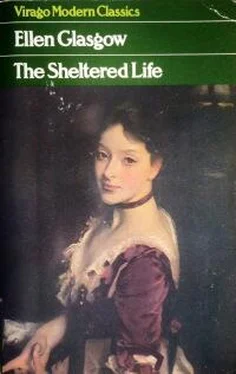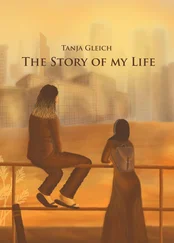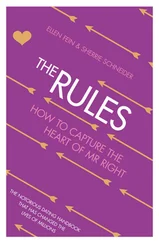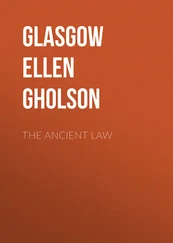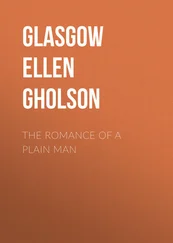Ellen Glasgow - The Sheltered Life
Здесь есть возможность читать онлайн «Ellen Glasgow - The Sheltered Life» весь текст электронной книги совершенно бесплатно (целиком полную версию без сокращений). В некоторых случаях можно слушать аудио, скачать через торрент в формате fb2 и присутствует краткое содержание. Жанр: Классическая проза, на английском языке. Описание произведения, (предисловие) а так же отзывы посетителей доступны на портале библиотеки ЛибКат.
- Название:The Sheltered Life
- Автор:
- Жанр:
- Год:неизвестен
- ISBN:нет данных
- Рейтинг книги:5 / 5. Голосов: 1
-
Избранное:Добавить в избранное
- Отзывы:
-
Ваша оценка:
- 100
- 1
- 2
- 3
- 4
- 5
The Sheltered Life: краткое содержание, описание и аннотация
Предлагаем к чтению аннотацию, описание, краткое содержание или предисловие (зависит от того, что написал сам автор книги «The Sheltered Life»). Если вы не нашли необходимую информацию о книге — напишите в комментариях, мы постараемся отыскать её.
The Sheltered Life — читать онлайн бесплатно полную книгу (весь текст) целиком
Ниже представлен текст книги, разбитый по страницам. Система сохранения места последней прочитанной страницы, позволяет с удобством читать онлайн бесплатно книгу «The Sheltered Life», без необходимости каждый раз заново искать на чём Вы остановились. Поставьте закладку, и сможете в любой момент перейти на страницу, на которой закончили чтение.
Интервал:
Закладка:
"And Isabella?" The General's manner was still playful. "Is she in the kitchen too?"
"She was here a minute ago," Mrs. Archbald answered, "but I'm afraid I said something that hurt her feelings. She went out. I think down to the stable." For an instant she hesitated, and then added with a significant look, "Don't you think, Father, it is time the work on the stable was finished?"
The General started, for he never missed a point in his daughter-in-law's strategy. "The Crockers will do the best they can," he replied. "I left it to them."
"I know," Mrs. Archbald assented. Then she said in a severe tone, "Jenny Blair, stop hanging on your grandfather. I told you not to worry him."
"I'm not worrying him, Mamma, but you said I might ask him. Grandfather, will you pay me for a hundred and fifty pages? They are dreadfully poky."
"We'll see, we'll see. If you are in urgent need, I suppose I'll have to do something about it."
"Oh, thank you, Grandfather darling." She took a step toward the door, picked up her skates, and swinging them in her hand, paused to look back over her shoulder. "Did you know the bad smell had come back?"
"Yes, I know, my child, but there's nothing to be done about that. Already it has gone, hasn't it?"
She wheeled round on the threshold. "I wish I could go down to the place it comes from. Do people live down there?"
"Yes, people live there. That is one of the wrongs of our civilization, that some people are obliged to live with bad smells."
"I wish I could go down there. I mean just to look."
"Put that idea straight out of your mind, Jenny Blair," Mrs. Archbald commanded with weary tartness. "I have trouble enough as it is."
CHAPTER 4
Outside, in the slanting beams of the sun, Jenny Blair strapped on her roller-skates and started dangerously over the sunken bricks of the pavement. Her mother had told her to keep on the sunny side of the street and not to skate beyond the corner, where the bricks were uneven and loose at the edges; but experience had shown her that it was safe to interpret broadly her mother's directions. The other children at school had dared her to walk alone, just before sunset, down Canal Street as far as the edge of Penitentiary Bottom; and though she belonged to that gallant breed which has never, as she told herself proudly, "taken a dare," she decided to keep up appearances by going the longest way round, through the Birdsongs' garden at the end of the block. Three long blocks, divided by three dingy alleys, stretched between Washington Street and the mysterious quarter which began with Canal Street and ended in the crowded hollow known as Penitentiary Bottom; but in upper Canal Street, where white people still occupied some of the old houses, she might be able to look over the hill into the exciting place from which the bad smells sprang up on the wind. Always, until to-day, she had paused at the end of Hickory Street and gazed with the eager eye of adventure past the unpaved alleys, where no skates could roll, to the muddy sidewalks and crumbling fences over which the gleaming whitewashed wall of the penitentiary presided. Nobody, least of all her mother, could understand the fascinated horror that drew her, like a tightened cord, toward the unknown and the forbidden. Nobody who had not been born with a rebel heart could share her impulse to skip and dance and flap her arms like fledgling wings as soon as she had broken away from the house and was sure that none of them could run after her because none of them knew where she was going. None of them, not even Grandfather, who was more of a child than the others, would ever suspect that she meant to walk down Canal Street as soon as the sun dipped beyond the walls of the prison. She hadn't told them because it never did any good to tell grown-up people the truth. It simply couldn't be done.
"I'll go and peep in on Mrs. Birdsong," she thought, honourably postponing her excursion until the sun had declined. "It won't take but a minute if I go through her yard."
Something—it may have been the beauty of Mrs. Birdsong—enveloped the small wistaria-mantled house in a perpetual air of surprise. No matter how often she went there, everything was always fresh and dewy and delightful, as if she had never seen it before. The ragged garden at the back, with its untrimmed shrubs and overgrown pool, had seemed to her, even as a little child, far more exciting than the carefully pruned borders and flower-beds of the garden at home. Especially, she loved to be at the Birdsongs' when Uncle Abednego, an ancient negro who lived in the almshouse, was making ineffectual efforts to preserve the dwindling box-trees, the straggling perpetual roses, and the flowering shrubs that had not died in the winter. Sometimes Mrs. Birdsong would come out with a trowel and plant a few flowers in the borders; but she did not like to dig in the earth; even when she wore gloves, she complained, the soil ruined her hands, and there was so much work to do in the house that she preferred to leave the garden to the feeble exertions of Uncle Abednego. The truth was that she knew little of flowers, and loved most the orchids and gardenias that came from florists and were grown only in hothouses. She rarely went into the garden for pleasure, and never walked there except on summer evenings when she was in search of a breeze. John Welch, an orphan cousin, was the only member of the Birdsong family who liked planting, and he had raised a border of what he called "witches' herbs" near the back porch.
Now, as Jenny Blair was taking off her skates in the front yard, he opened the door and came, whistling rudely, down the steps. He was an overgrown, rather awkward boy of seventeen, with a crest of flaming red hair above attractive pointed features and a lively expression. His curiosity about life was insatiable, and in a few years he would begin the study of medicine. Ever since he had come, as a little boy, to live with the Birdsongs, he had insisted that he meant to be a doctor, not a lawyer like George Birdsong. That first spring, when he was only nine, he had planted, with Uncle Abednego's help, his border of "witches' herbs," and he was always interested in trying to cure animals or birds that were injured. More important still, he kept a pet bullfrog, named Old Mortality, in the sunken pool, which was once a lily-pond, at the far end of the garden. Jenny Blair had welcomed Old Mortality, one May afternoon, when he was brought as a tadpole from an old ice-pond. Several other Old Mortalitys had lived and died in the pool; but the child was sure that she could recognize the face of her acquaintance among them; and she never doubted that the present bearer of the title was the progenitor of the family.
"Where are you going?" she inquired of John Welch, while she stood swinging her skates from her hand.
"You'd like to know, wouldn't you?" he retorted teasingly; for he was at an age that she considered objectionable and he missed no opportunity of proving the fact.
"No, I wouldn't. I just asked."
"Yes, you would."
"No, I wouldn't."
After making an impertinent face at him, she darted away in search of the more agreeable company of Uncle Abednego. But Uncle Abednego had already put away his spade and gone home to the almshouse. The garden, untended and untrimmed, was alone with the delicate green light and the roving whispers of spring. Over the edge of the brick walk there was a froth of wild heartsease; the border of dying box was hollow within but wore a living veil overhead; farther away, beyond the twisted crêpe myrtle, weeds surged round the lily-pond, where Old Mortality, a green bullfrog with a Presbyterian face, sat on a moss-grown log in the midst of a few faded lily-pads, and croaked prophetically, at twilight, of the evil to come. "I know he is the very same," Jenny Blair thought now, looking down on him. "I remember his face perfectly well."
Читать дальшеИнтервал:
Закладка:
Похожие книги на «The Sheltered Life»
Представляем Вашему вниманию похожие книги на «The Sheltered Life» списком для выбора. Мы отобрали схожую по названию и смыслу литературу в надежде предоставить читателям больше вариантов отыскать новые, интересные, ещё непрочитанные произведения.
Обсуждение, отзывы о книге «The Sheltered Life» и просто собственные мнения читателей. Оставьте ваши комментарии, напишите, что Вы думаете о произведении, его смысле или главных героях. Укажите что конкретно понравилось, а что нет, и почему Вы так считаете.
